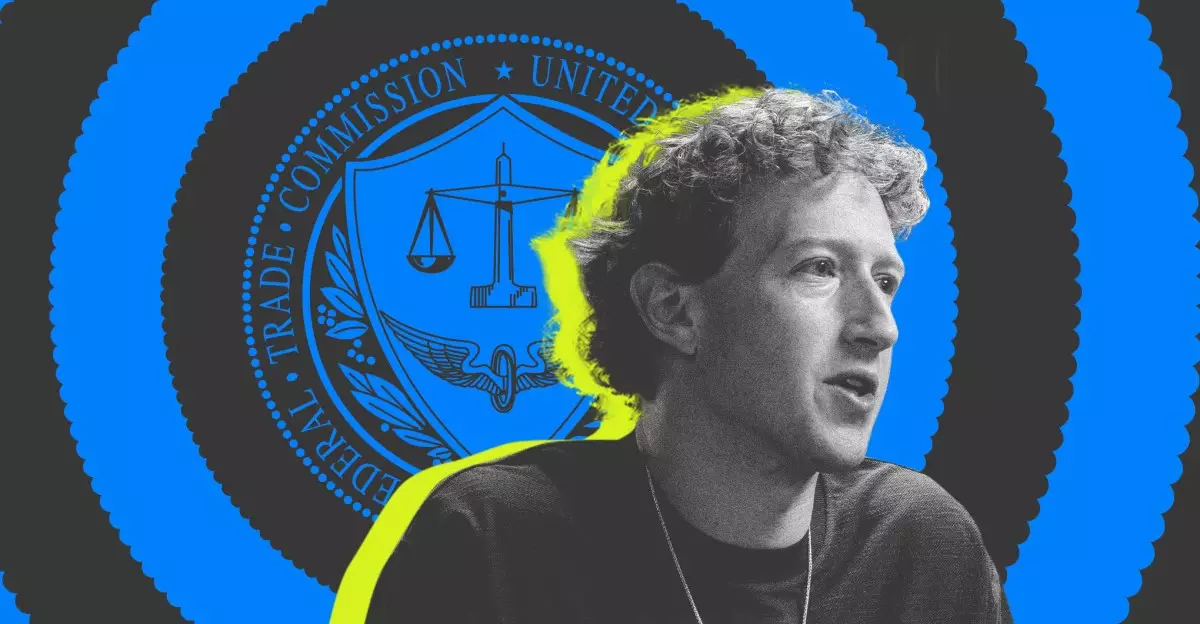The evolution of Meta, arguably one of the most influential tech giants of our time, is rife with “what if” scenarios that could have drastically reshaped the digital landscape. From its inception, Mark Zuckerberg’s decisions cascaded into monumental effects not just for the company, but for global communication as a whole. As a seasoned journalist like Lauren Feiner illustrates in her coverage, Zuckerberg has seen his platform weather intense scrutiny over antitrust concerns, raising essential questions about the essence of competition in today’s market. With the company’s growth intertwined with pivotal acquisitions, one might wonder how Meta’s trajectory might have been altered through different choices.
What if Zuckerberg had chosen to delineate Instagram as a separate entity instead of integrating it into the larger Meta ecosystem? Such a strategy could have fostered a sense of innovation and competition within the social media realm, potentially giving rise to a plethora of unique platforms catering to diverse audiences. The decision not to expand Snapchat’s horizons by purchasing it—a missed opportunity when presented with a $6 billion bid—opens another vein of contemplation. Rather than suffocating its competition, Meta could have included Snapchat as a thriving pillar in its empire, giving users more choices instead of a singular focus.
The Courtroom Drama: A Lens on Market Competition
Recently, Zuckerberg found himself in a tense courtroom battle, as Meta stands trial against the Federal Trade Commission (FTC), which alleges that the company’s market dominance stifles competition. The narrative, framed by the FTC, conveys a dismal image of a monopolistic tech giant that pursued acquisitions in a bid to eliminate challengers. This raises the essential debate over what defines fair competition. Zuckerberg’s contrasting viewpoint—that the social networking sphere is fluid and akin to an evolving ecosystem—challenges the FTC’s assertions and compels one to think critically about definitions of market power.
The courtroom proceedings revealed the contrast between how Meta projects itself and the multi-faceted nature of its actual business practices. Zuckerberg’s insistence on Meta’s self-perceived interconnectedness among diverse services made the case for a broader understanding of the market. While Facebook markets itself as a platform for friends and family connections, the deeper layers reveal potential overlaps with career-focused platforms like LinkedIn. This fluid characterization of services can be disorienting, but it’s also a hallmark of contemporary digital behavior where boundaries continuously blur.
The Virtues of Uncertainty: A Kaleidoscope of Realities
The testimonies unearthed more than just legal arguments; they presented a kaleidoscopic view of alternate realities laden with implications for the user experience. Imagine a world where Zuckerberg had decided to wipe users’ friends lists to recapture the euphoria of fresh connections, as he whimsically proposed in 2022. Such radical innovations could have sparked a revolutionary discourse about user engagement, encouraging people to seek genuine connections instead of amassing virtual acquaintances. It’s not merely a fleeting consideration; it encapsulates a philosophical approach to social networking that could prompt a self-reflection about our digital identities.
In parallel, Zuckerberg’s imagined scenario of converting Facebook’s feed into an advertisement-only experience hints at an engrossing commentary on the nature of content consumption. By transforming ads into the primary experience, Meta could have coerced users to reassess their digital interactions, perhaps resulting in a different matrix of user behavior. Instead of users merely scrolling, one might envision an active discourse where monetized content forces a reevaluation of online engagement and value.
The Financial Elephant in the Room: Ad Load and User Choice
One glaring consequence of Meta’s past choices revolves around its advertising model—central to its financial engine. The FTC suggested that the ability to increase ad load roots itself in a lack of alternative platforms for users. Zuckerberg’s assertion that users view ads as comparable to original content speaks volumes about how businesses perceive consumer indifference towards advertising. In a world seasoned by algorithmic influence, users might not discern the proliferation of advertisements as intrusive but instead as integrated elements of their social feed.
Yet, this begs the query of whether Meta’s monopoly—real or constructed—has resulted in a unidimensional user experience. Could greater competition have invigorated avenues for innovation that prioritize user input? While Zuckerberg posits that his acquisitions ultimately enhanced the services provided by Instagram and WhatsApp, the continued legal and ethical conversations around these practices spotlight larger truths about growth, responsibility, and consumer preference in an age increasingly defined by digital discourse.
In this complex labyrinth of possibilities, choices resonate profoundly, not just within a corporate framework, but also echo through social norms and usage patterns that define how we communicate today, reshaping the fundamentals of human interaction in the online space.


Leave a Reply